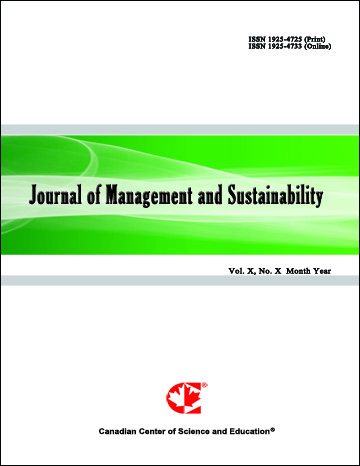Competitive Strategies Their Relevance for Sustainable Development in the Food Industry
- Malte Peters
- Stephan Zelewski
Abstract
To date, there are only few works in the strategic management literature considering sustainable development aswell as competitive strategies. The contribution extends existing work by a systematic analysis on the
compatibility of activities for sustainable development and competitive strategies in the food industry. Activities
for sustainable development are categorized according to the two dimensions of “effects on costs in the long
term” and “effects on food product quality”. The purpose of this contribution is to theoretically examine the
compatibility of activities for sustainable development and competitive strategies in order to derive practical
guidance for strategy executives in the food industry. Michael E. Porter’s concept of generic competitive
strategies as well as the idea of hybrid strategies are applied to systematically analyze the compatibility.
Furthermore, it is revealed that there is presently a lack of empirical findings regarding the potential success of
hybrid strategies in the food industry within the context of sustainable development. The contribution provides
guidance on choosing generic competitive strategies and appropriate supporting activities within the context of
sustainable development. It is shown that companies in the food industry who follow the idea of sustainable
development uncompromisingly will often have problems to successfully establish the competitive strategy of
cost leadership.
- Full Text:
 PDF
PDF
- DOI:10.5539/jms.v3n3p148
Journal Metrics
Google-based Impact Factor (2021): 1.54
h-index (July 2022): 37
i10-index (July 2022): 147
h5-index (2017-2021): 12
h5-median (2017-2021): 19
Index
- Academic Journals Database
- ANVUR (Italian National Agency for the Evaluation of Universities and Research Institutes)
- CAB Abstracts
- CNKI Scholar
- EconBiz
- Excellence in Research for Australia (ERA)
- GETIT@YALE (Yale University Library)
- Harvard Library
- HeinOnline
- Infotrieve
- JournalTOCs
- LOCKSS
- MIAR
- PKP Open Archives Harvester
- RePEc
- Scilit
- SHERPA/RoMEO
- Stanford Libraries
- UCR Library
Contact
- Evelyn XiaoEditorial Assistant
- jms@ccsenet.org
